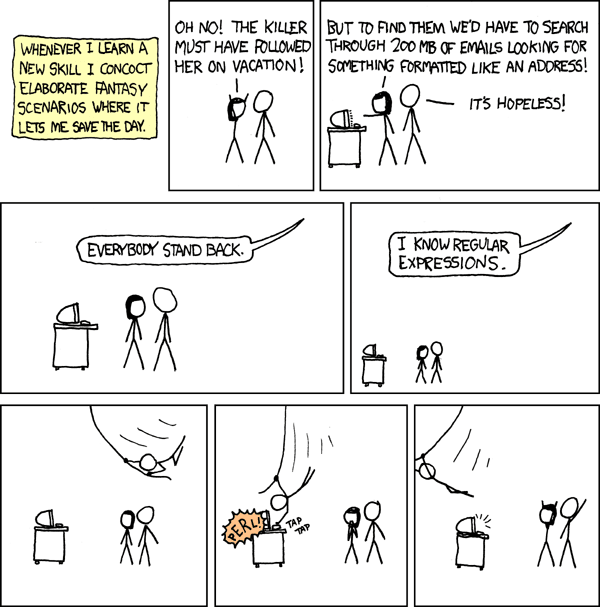From journal to .json
In order to convert from your journal log to json, so it is easily parseable, jq offers an option that allows you to run a filter, only until the end of the file:
Instead of running the filter for each JSON object in the input, read the entire input stream into a large array and
run the filter just once.
This allows you to save the file directly, ready to be processed by your favorite tools, here’s what I used:
journalctl -u postfix.service --since yesterday -g "denied" --output json | jq -s "." > data/log.json
Enter Perl
Now, because I’ve been using Perl for ${deity} knows how long (I wrote my first Perl script at the end of the 90’s), naturally, is my language of choice for quick things where my knowledge of bash isn’t going to cut it:
First I want to load my file, I’m going to rely on Mojo, specifically Mojo::Collection and Mojo::JSON for this as I’m familiar with both, also, if I wan’t to dig a bit into what’s inside my collections, I can always do:
use Mojo::Util qw(dumper);
say dumper $collection->to_array;
But I digress, back to business
The real stuff
This piece of code filters for me, what it reads from a file (I’m doing $_= path(shift); for convenience)
my $file = Mojo::Collection->new(decode_json($_->slurp))->flatten;
// Filter using Mojo::Collection::grep to have a new collection with the data I'm interested in
my $filtered = $file->grep(sub{
$_->{MESSAGE} =~ /denied/
});
Now that I have the elements on a single array (of course, if I’m looking at a file over a gigabyte, likely I’d look into putting this inside some sort of database, PostgreSQL for instance, has excellent Json support), it’s time to do something with it:
// get anything that looks like a hostname before, and get the ip address
// example: NOQUEUE: reject: RCPT from ns2.pads.ufrj.br[146.164.48.5]: 554 5.7.1 <relaytest@antispam-ufrj.pads.ufrj.br>:
// I want to have ethe IP in a named group so I can later reference it with `$+{'IP'}`
my $regexp = qr{(.*[a-zA-Z0-9-._]+)\[(?<IP>.*)\]>?:.*};
Ideally (and for the future) I might want to filter in a different way, and capture different things, but you get the idea however today, we only want to know which ip addresses were rejected while testing our changes in our postfix’s configuration
$filtered->each(sub{
if ($_->{'MESSAGE'} =~ /$regexp/ ){
say "bash ./unban ".$+{'IP'};
} else {
warn "CANNOT GET IP: ".$_->{"MESSAGE"};
}
});
I have another script that does the unban, but for now I’m ok with copy&pasting :)
The full script is at: https://github.com/foursixnine/stunning-octo-chainsaw/blob/master/postfix-logparser/logparser.pl pull requests are welcome, and maybe in the future I move this to its own thing, but for now, that’s all folks.







Top comments (0)